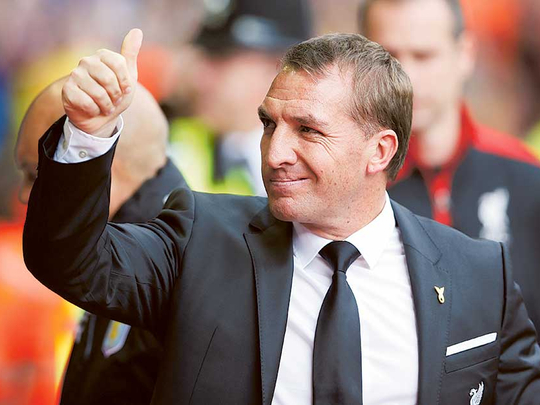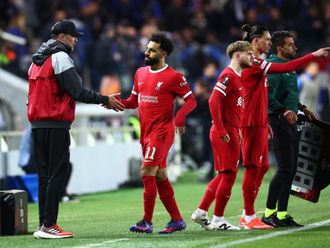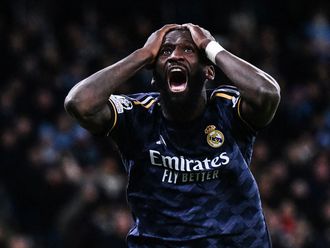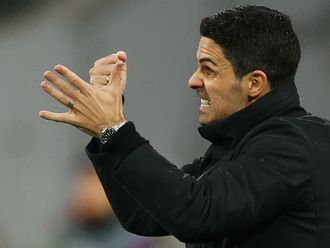
First David Moyes. Now Brendan Rodgers. Maybe neither manager was right for Manchester United and Liverpool respectively, but their sackings are significant blows for the hopes of British coaches to land the top jobs in this country.
No one is mentioning a British manager to take over at Anfield and, given the field, probably understandably so. Ryan Giggs represents the best hope of one eventually taking over at Old Trafford again, but he is a special case given his association and current role at the club.
Chelsea will not go British if Jose Mourinho departs — they never have done under owner Roman Abramovich, so are unlikely to break that trend. Manchester City and Arsenal are also unlikely to think a British manager is the way ahead for them, when Manuel Pellegrini and Arsene Wenger eventually leave.
There is a good, young crop of British talent: Eddie Howe, Garry Monk, Sean Dyche, Alex Neil. But Rodgers was at the head of them and now he has gone.
The only British manager left in the top 10 in the Premier League is Alan Pardew, who has done an excellent job at Crystal Palace, who sit fourth, and is again showing just what a good manager he is. Pardew also has ambition, for Palace and himself. “I won’t ever let it rest until I’m done, to get one of the big clubs,” he said. Managing England is another ambition.
The other seven British managers are in the bottom half of the league and most are unlikely to move out of it this season.
Does it matter? The Premier League is the wealthiest and increasingly the most cosmopolitan league in the world, so it can, and should, look everywhere to recruit the best. Ten of the clubs in the division are foreign-owned and only one of them — Aston Villa — has a British manager in charge, and they sit in the relegation zone.
Of course, all club owners and executives will argue — as Wenger does when it comes to recruiting players — that they do not look at passports but just go for the best man for the job. If the choice at Liverpool is between Carlo Ancelotti and Jurgen Klopp, it is hard to argue that a British coach has better credentials.
But it does matter for anyone who cares about the British game and the promotion of British talent, not least because of the benefit it has for the national teams. Also, there is something inherently sad about Rodgers being sacked by Liverpool.
Moyes’s tenure at United was a whirlwind, a traumatic ride that seemed over before it had begun. Almost a special case. The Rodgers case feels different. It is 13 months since I suggested in a column that Rodgers should be asked whether he wanted to succeed Roy Hodgson when he leaves the post of England manager — possibly after Euro 2016 — and I stand by it.
I still think it is not such a barmy idea. Then it was derided, with people asking why a high-flying young Premier League coach would want that poisoned chalice. Now people will say why should England take on a failure, an @DeludedBrendan (the spoof Twitter account)?
Then I said it was because of the “vision thing”, because Rodgers had a way of playing that was attractive and appealing, and because he also had an evangelical approach in claiming: “My life’s work is trying to show that British players can play.” I wanted to see that claim tested.
Rodgers had sat a group of journalists down at Liverpool’s training ground, Melwood, and explained: “I grew up being told British players weren’t as technically good as European players, which was the biggest load of tosh I’ve ever heard. My methods and ideas are a fusion between British mentality and European ways of working.”
Liverpool and Rodgers have lost their way since then, the “vision thing” has become blurred, but the football in 2013-14, when he went so close to bringing the title back to Anfield for the first time since 1990, was simply brilliant. And it was not just because of Luis Suarez.
There is a lot of revisionism going on now, but it is churlish not to credit Rodgers with that season while blaming him for what has happened since. Two things should be happening today.
The first is obvious. Sunderland — if they have any sense, and that is a big assumption at such a chaotic club — should be on the phone offering Rodgers an immediate way back into Premier League management. It would be a superb appointment.
The second is that the Football Association should take a break from its rationalisation and reform, its redundancies and reorganisation, and Dan Ashworth, technical director, should contact Rodgers to ask about his intentions. The pair almost worked together at Liverpool — Ashworth, then at West Bromwich Albion, was recommended as director of football, a role that, ironically, Rodgers did not want to work with. Ironic because he then had a transfer committee imposed on him. So they know each other well, and hopefully there is an appreciation of each other’s skills.
The expectation is that Rodgers will not rush back into management and that he still believes — understandably so — that he can manage at a top club in England or abroad, given he has made no secret of the fact that he would like to work in Spain, in particular.
He is just 42 — four years younger than Villa’s Tim Sherwood — and already has seven years’ experience as a manager, four of those in the Premier League, so his career has barely begun and yet he has vast, intense experience at the very top.
Here lies an opportunity for the FA. Why not invite Rodgers in now? Why not ask him if he wants to take an informal role, if he is going to take a sabbatical from club management as he waits for the right opportunity, and to go and work at the FA’s coaching hub at St George’s Park.
Why not ask Rodgers to cast his eye over their plans and see whether they have the “vision thing” also — and whether he can add to it. Why not test him out?
Rodgers may prefer to take a long holiday, refresh himself, even travel and add to his knowledge by visiting clubs around the world. But ask him. Rodgers might even take a role aiding Hodgson in his preparations for next summer’s finals in France and see where that leads. He can easily return to club management after that if he does not take a job before then.
It is worth asking because he is a talented coach and a good man-manager, whatever the verdict on his time at Liverpool. And he is British.
— The Daily Telegraph












